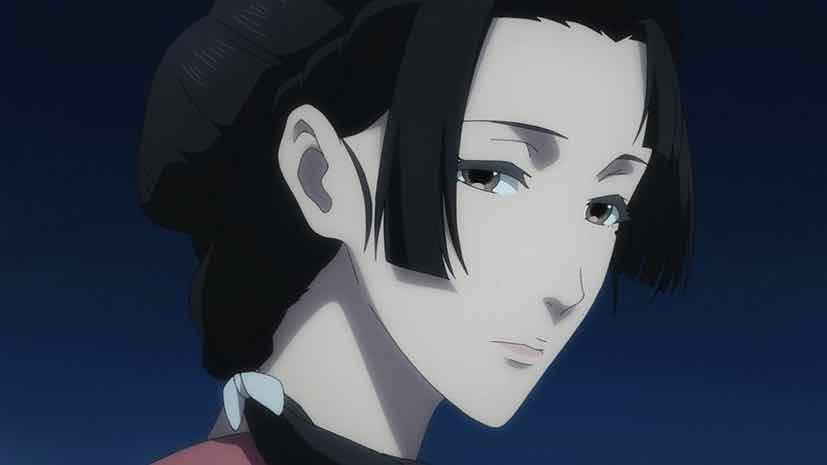 Not for the first time in watching Revenger, I’m reminded of how good a writer Urobuchi Gen can be. A writer who composes like a grown-up, writing about grown-ups doing grown-up things. Being freed of the overcoat of anime tropes Urobuchi is so often adorned with always casts his work in a different (and generally better) light. This is a good series, (very) well-directed and acted, with an outstanding soundtrack. But ultimately it’s the writing that makes Revenger stand out. I see no evidence it’s making much of a splash on either side of the water, but that doesn’t diminish its value in any way.
Not for the first time in watching Revenger, I’m reminded of how good a writer Urobuchi Gen can be. A writer who composes like a grown-up, writing about grown-ups doing grown-up things. Being freed of the overcoat of anime tropes Urobuchi is so often adorned with always casts his work in a different (and generally better) light. This is a good series, (very) well-directed and acted, with an outstanding soundtrack. But ultimately it’s the writing that makes Revenger stand out. I see no evidence it’s making much of a splash on either side of the water, but that doesn’t diminish its value in any way.
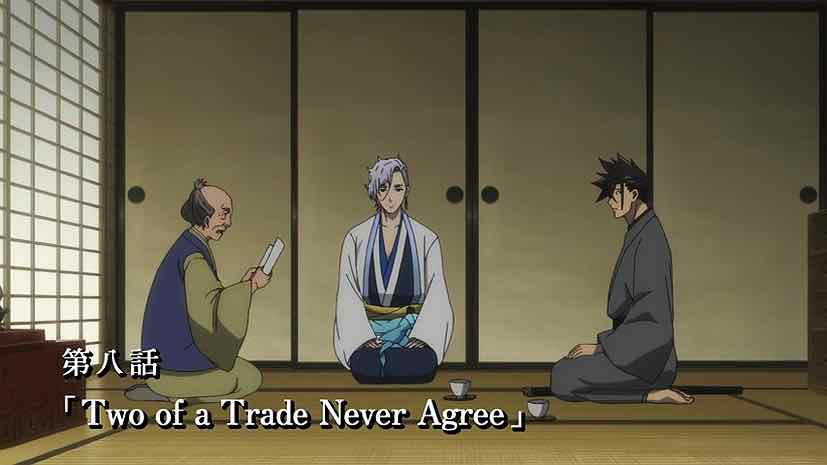 This episode was packed with interesting ideas and twists, all beautifully woven together. We begin, as is so often the case, with Raizou’s continual struggle to accept his past (and future). His art continues to draw attention, and he’s taken on a pseudonym – “Taishin”. But his crimes haunt him relentlessly. He finally paints his late fiancee, reasoning that if he’s tormented by her visage all the time anyway there’s no reason to avoid it any longer. Yuuen dangles the possibility that Raizou could “die” and Taishin live on. His talent gives him an option the other revengers don’t have, a way back to a life without killing. Yuuen even offers him his old retreat in the mountains as a studio. But Raizou isn’t sure if he deserves any of it.
This episode was packed with interesting ideas and twists, all beautifully woven together. We begin, as is so often the case, with Raizou’s continual struggle to accept his past (and future). His art continues to draw attention, and he’s taken on a pseudonym – “Taishin”. But his crimes haunt him relentlessly. He finally paints his late fiancee, reasoning that if he’s tormented by her visage all the time anyway there’s no reason to avoid it any longer. Yuuen dangles the possibility that Raizou could “die” and Taishin live on. His talent gives him an option the other revengers don’t have, a way back to a life without killing. Yuuen even offers him his old retreat in the mountains as a studio. But Raizou isn’t sure if he deserves any of it.
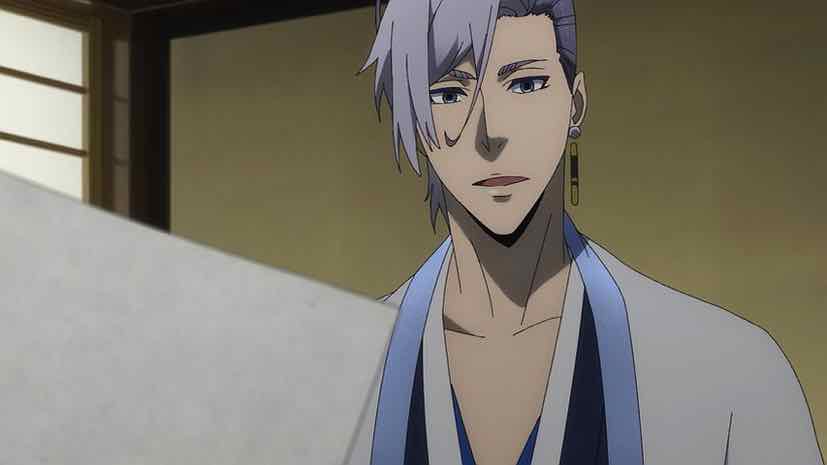 Yuuen tells Nio he’s testing Raizou, to determine whether he deserves to die. But the truth is he’s being genuine here, I think. Yuuen knows the path his people are on is one-way, and he cares about them. If there’s a way to save one of them from that fate he wants to pursue it. But even assuming Raizou was willing to accept that salvation, there’s no guarantee he could leave his past behind. That evening he goes to dine in a small izakaya, where he’s seated with a cynical priest (Suwabe Junichi, so you know he’s important). They proceed to have a fascinating conversation about killing – a subject the priest takes a distinctly un-pious attitude towards.
Yuuen tells Nio he’s testing Raizou, to determine whether he deserves to die. But the truth is he’s being genuine here, I think. Yuuen knows the path his people are on is one-way, and he cares about them. If there’s a way to save one of them from that fate he wants to pursue it. But even assuming Raizou was willing to accept that salvation, there’s no guarantee he could leave his past behind. That evening he goes to dine in a small izakaya, where he’s seated with a cynical priest (Suwabe Junichi, so you know he’s important). They proceed to have a fascinating conversation about killing – a subject the priest takes a distinctly un-pious attitude towards.
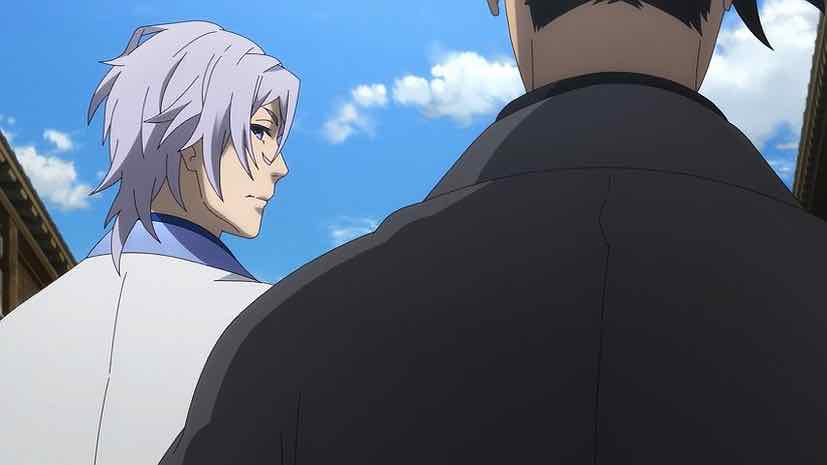 Religion of any sort isn’t coming off especially well in Revenger – and that, to be sure, is a consistent Urobuchi theme. The priest’s argument that vegetarians and flower sellers are just as tainted as samurai doesn’t sit well with Raizou. But the real meat of their disagreement comes when the priest makes a disturbing argument about how paying someone for a service – or employing them (“livelihood”) – is a murder in its own right, with coin rather than sword. That coin (the symbolism in this context isn’t accidental) buys a portion of that persons life, something they’ll never get back. Ultimately I think the priest’s position is pedantic, but there’s enough cut to it to unsettle Raizo profoundly.
Religion of any sort isn’t coming off especially well in Revenger – and that, to be sure, is a consistent Urobuchi theme. The priest’s argument that vegetarians and flower sellers are just as tainted as samurai doesn’t sit well with Raizou. But the real meat of their disagreement comes when the priest makes a disturbing argument about how paying someone for a service – or employing them (“livelihood”) – is a murder in its own right, with coin rather than sword. That coin (the symbolism in this context isn’t accidental) buys a portion of that persons life, something they’ll never get back. Ultimately I think the priest’s position is pedantic, but there’s enough cut to it to unsettle Raizo profoundly.
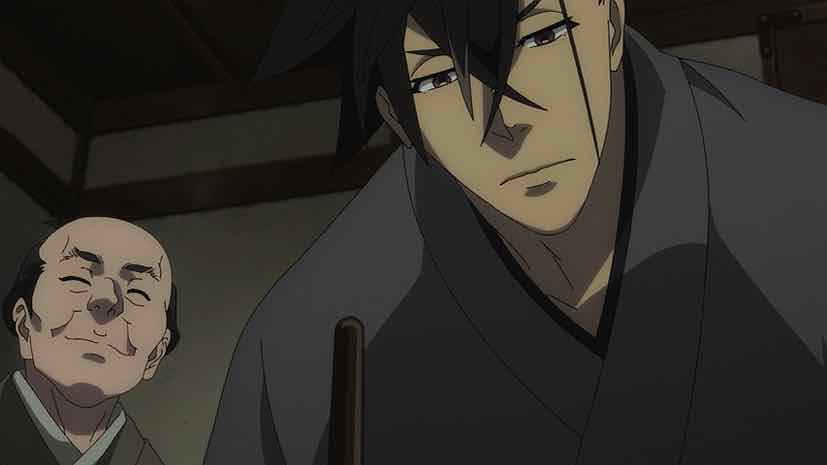 What happens next really unsettles the foundations of Revenger like no earlier development has. Kanou the (Christian) priest calls Yuuen to the chapel, scolds him over the Chinatown theatrics, but offers him a chance to secure a desired result – stopping the opium trade from spreading. There’s just one problem – the gold (a fat ingot of it, too) isn’t bitten. No matter, the priest says – the scorch marks on it are the proof of the grudge. It comes from Shimabara, where a 1637 rebellion by the largely Catholic peasantry was brutally put down by the domain’s lord, Matsukura Kitsuie. Matsukura executed an estimated 37,000 rebels and sympathizers by beheading. He was later beheaded himself by the shogun for his actions, but his strict anti-Christianity laws would stay in place for more than two centuries.
What happens next really unsettles the foundations of Revenger like no earlier development has. Kanou the (Christian) priest calls Yuuen to the chapel, scolds him over the Chinatown theatrics, but offers him a chance to secure a desired result – stopping the opium trade from spreading. There’s just one problem – the gold (a fat ingot of it, too) isn’t bitten. No matter, the priest says – the scorch marks on it are the proof of the grudge. It comes from Shimabara, where a 1637 rebellion by the largely Catholic peasantry was brutally put down by the domain’s lord, Matsukura Kitsuie. Matsukura executed an estimated 37,000 rebels and sympathizers by beheading. He was later beheaded himself by the shogun for his actions, but his strict anti-Christianity laws would stay in place for more than two centuries.
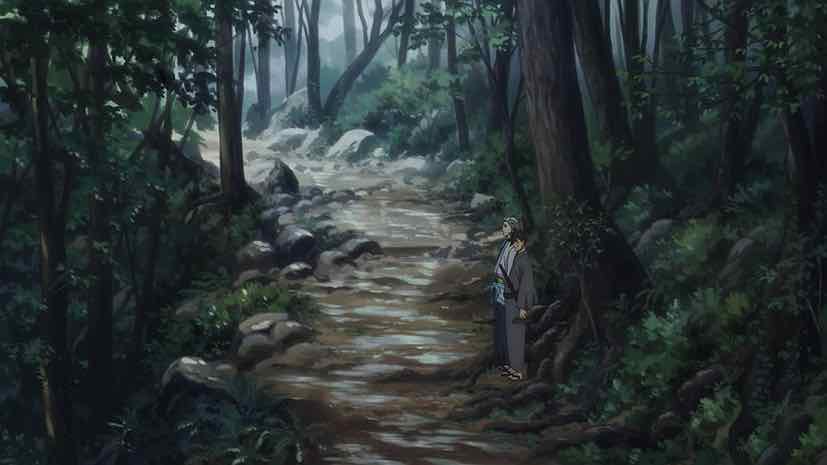 Kanou’s argument that the grudge of those dead Christians (and the others) speaks for itself. But this puts to lie not just Yuuen’s declaration that the Reben-ji never kill without bitten gold, but the entire pretense that what they’re doing isn’t simple murder. It’s no leap to go from grudge contract hits to targeted murders – in this case Liu, who Kanou declares is trying to expand the opium trade – based on supposed moral superiority. Yuuen knows this of course – knows exactly what the cost of carrying out this “revenge” would be. Souji is in favor, Raizou against (and Nio too, who takes Yuuen at his word). But Yuuen also knows that if they refuse, they become the enemies (and eventually, targets) of the group that’s underwritten their activities.
Kanou’s argument that the grudge of those dead Christians (and the others) speaks for itself. But this puts to lie not just Yuuen’s declaration that the Reben-ji never kill without bitten gold, but the entire pretense that what they’re doing isn’t simple murder. It’s no leap to go from grudge contract hits to targeted murders – in this case Liu, who Kanou declares is trying to expand the opium trade – based on supposed moral superiority. Yuuen knows this of course – knows exactly what the cost of carrying out this “revenge” would be. Souji is in favor, Raizou against (and Nio too, who takes Yuuen at his word). But Yuuen also knows that if they refuse, they become the enemies (and eventually, targets) of the group that’s underwritten their activities.
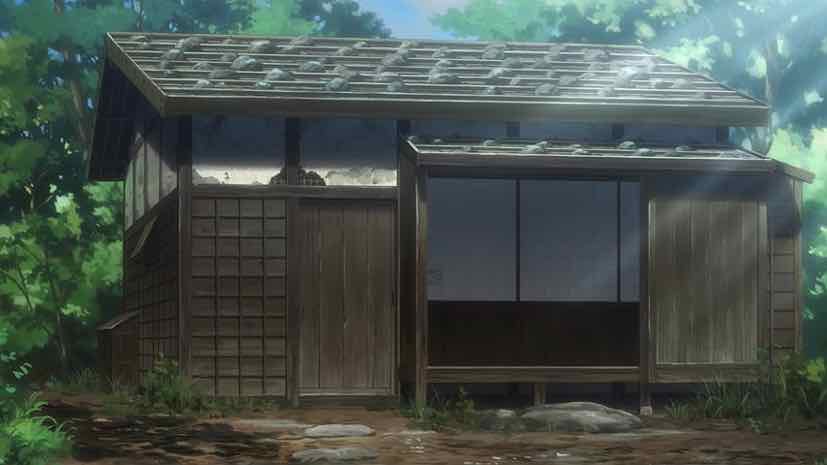 As it turns out, the priest from the izakaya is a revenger too, in town at the behest of the Kaishou chief Shishido. And his group uses rifles to kill from long-range (I’m not an expert, but their weapons look too advanced for the setting – another historical tweak, perhaps). The target is Liu, who the Reben-ji have decided to investigate to determine whether Kanou’s order is indeed rooted in justice. With Shishido targeting Liu that strongly implicates him as the one who wants Mitsumine’s opium and the trade windfall it can bring him. That’s more or less confirmed when the Reben-ji intercept Liu’s letter to Lin Zexu, who as Scampi pointed out in the comments last week was strongly opposed to the opium trade (an opposition which led to the first Opium War in 1839).
As it turns out, the priest from the izakaya is a revenger too, in town at the behest of the Kaishou chief Shishido. And his group uses rifles to kill from long-range (I’m not an expert, but their weapons look too advanced for the setting – another historical tweak, perhaps). The target is Liu, who the Reben-ji have decided to investigate to determine whether Kanou’s order is indeed rooted in justice. With Shishido targeting Liu that strongly implicates him as the one who wants Mitsumine’s opium and the trade windfall it can bring him. That’s more or less confirmed when the Reben-ji intercept Liu’s letter to Lin Zexu, who as Scampi pointed out in the comments last week was strongly opposed to the opium trade (an opposition which led to the first Opium War in 1839).
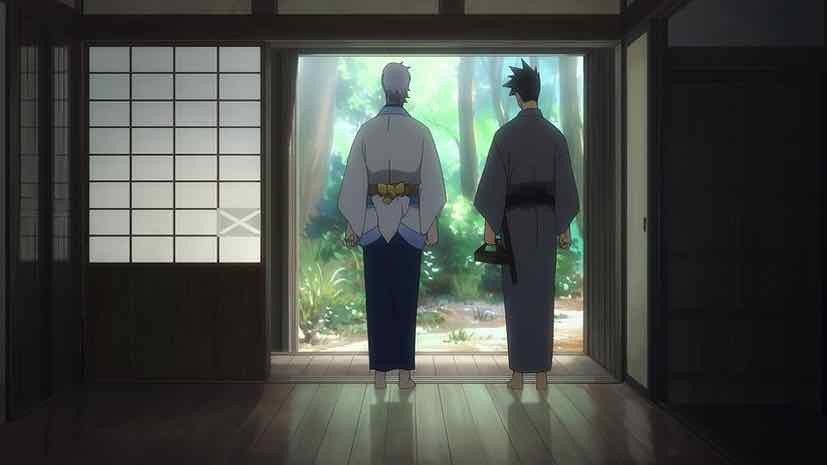 The Reben-ji’s refusal to “wag their tails” may indeed show that they aren’t the chapel’s lap dogs, but it effectively makes them marked men in Nagasaki. And even as they refuse to carry out the hit on Liu, Shishido’s revengers do – fatally, one presumes, though that’s still to be confirmed. Occam’s Razor suggests that both Kanou and Shishido are interested in the same thing – the opium and control of its distribution – and saw Liu as an obstacle in their path. Now they’ll take that view of each other, and the Reben-ji are likely the enemies of both of them.
The Reben-ji’s refusal to “wag their tails” may indeed show that they aren’t the chapel’s lap dogs, but it effectively makes them marked men in Nagasaki. And even as they refuse to carry out the hit on Liu, Shishido’s revengers do – fatally, one presumes, though that’s still to be confirmed. Occam’s Razor suggests that both Kanou and Shishido are interested in the same thing – the opium and control of its distribution – and saw Liu as an obstacle in their path. Now they’ll take that view of each other, and the Reben-ji are likely the enemies of both of them.


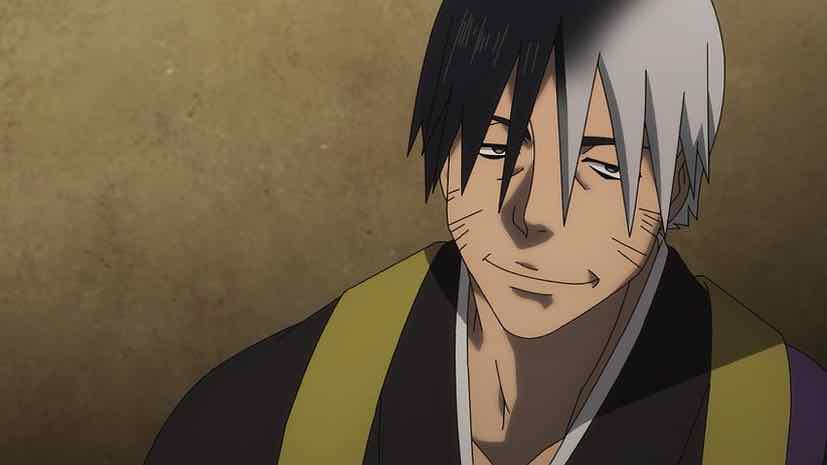
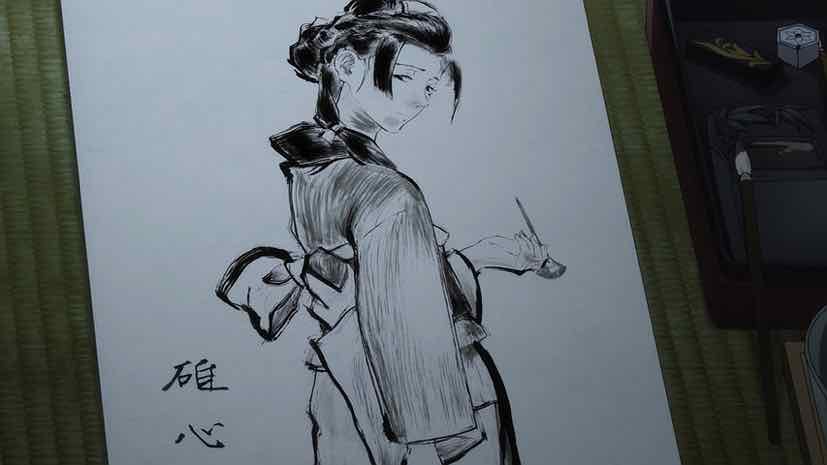
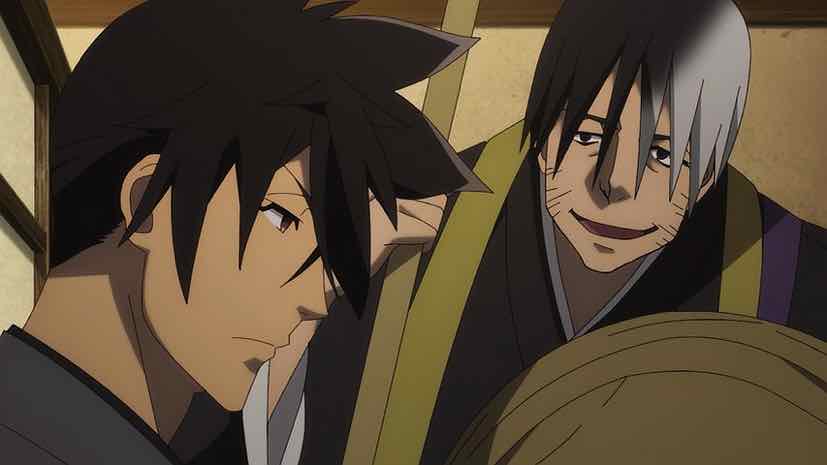
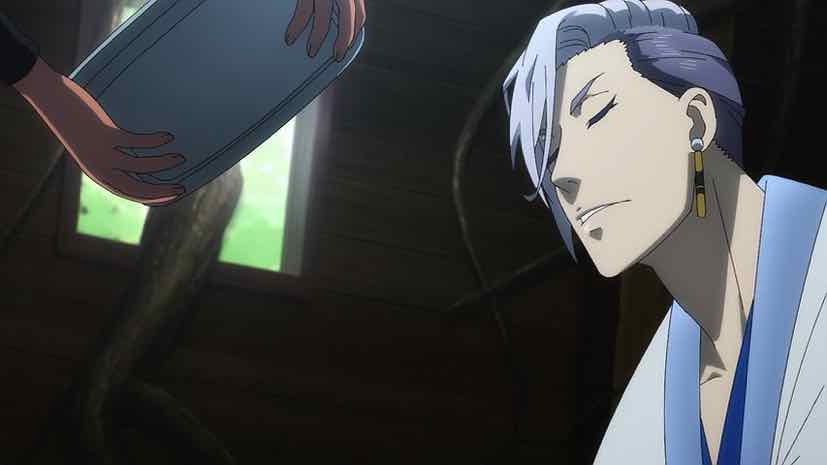
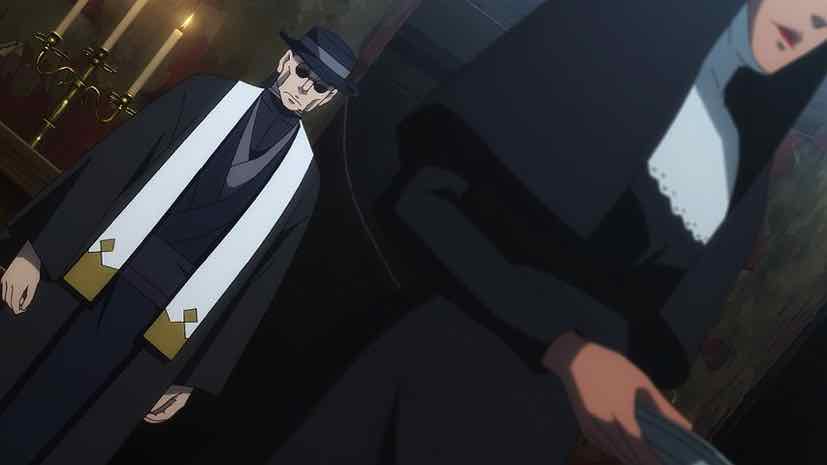
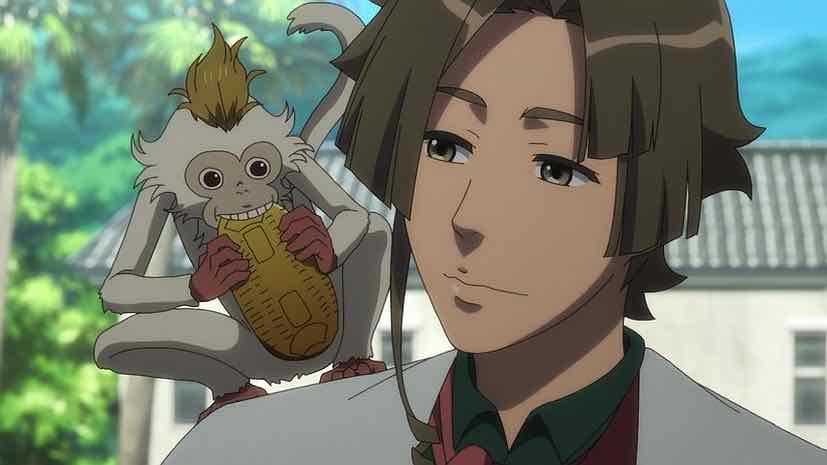
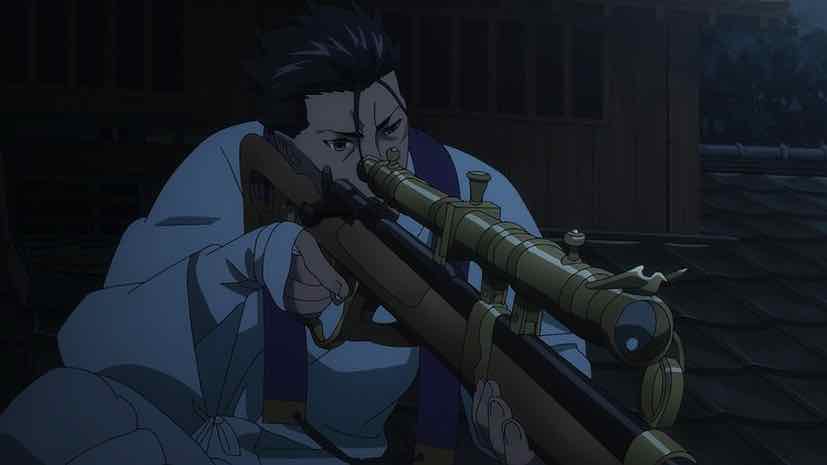
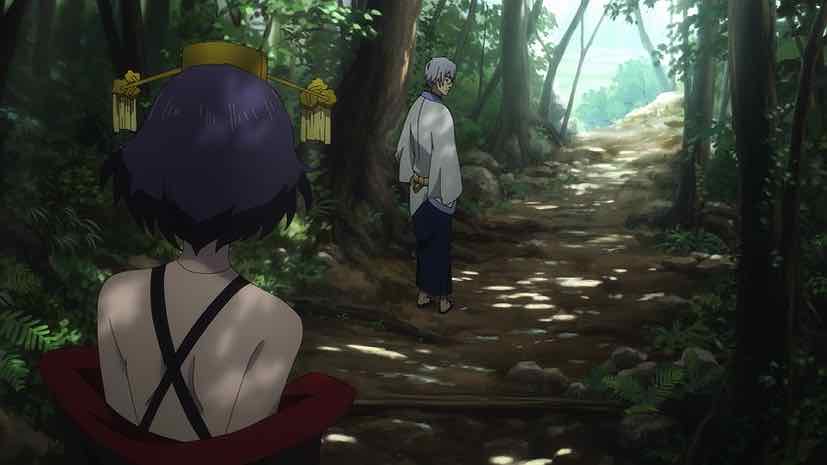

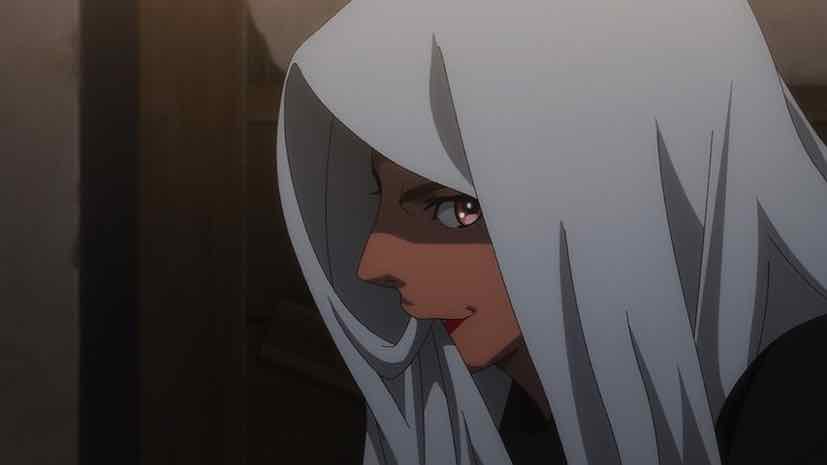
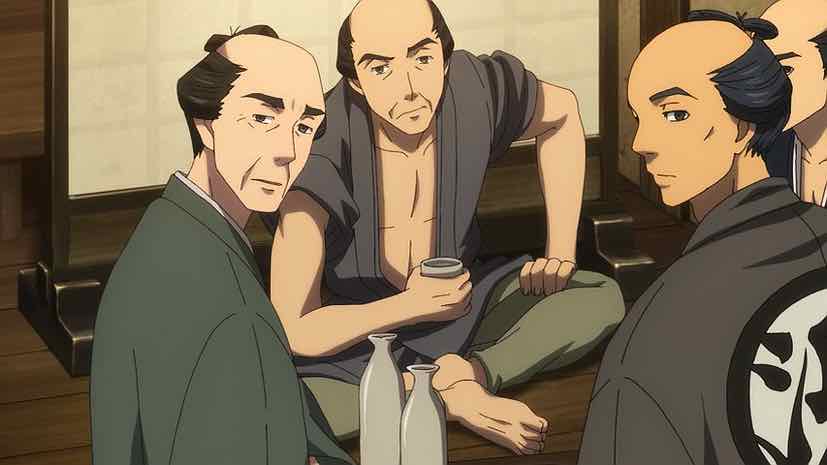
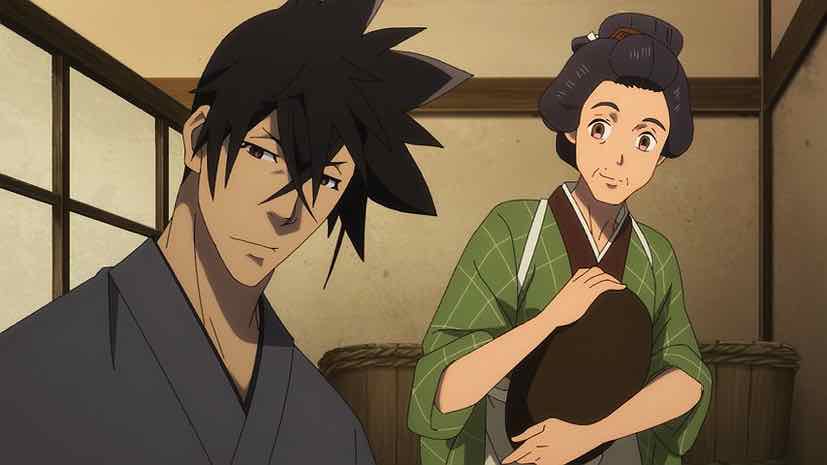
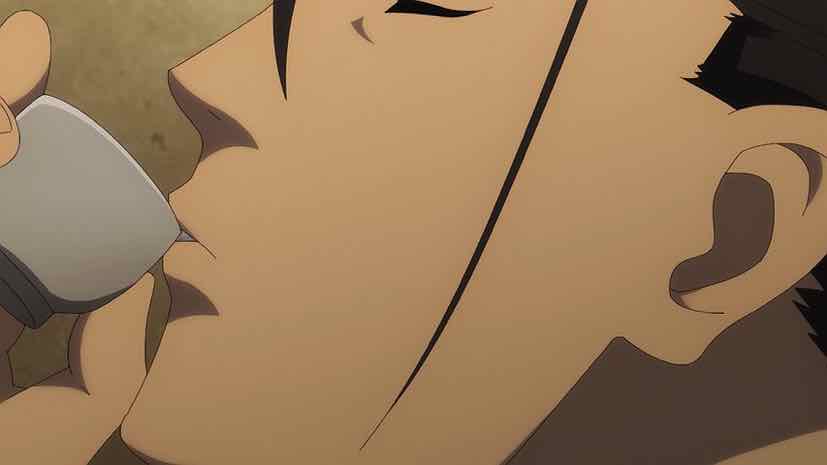
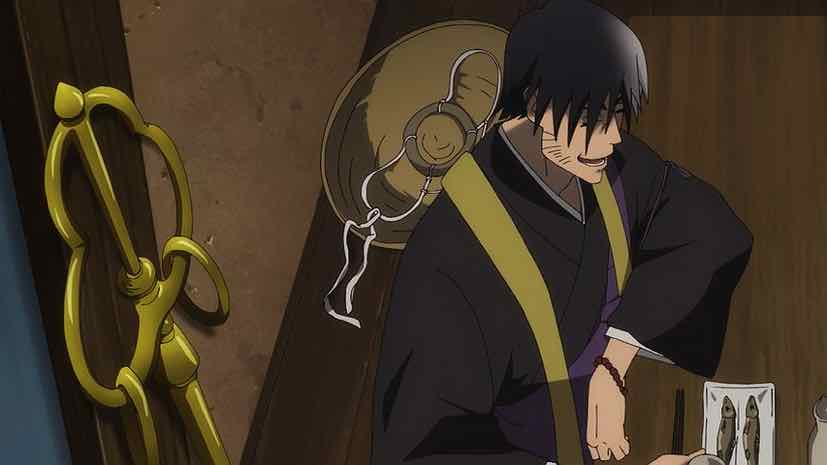
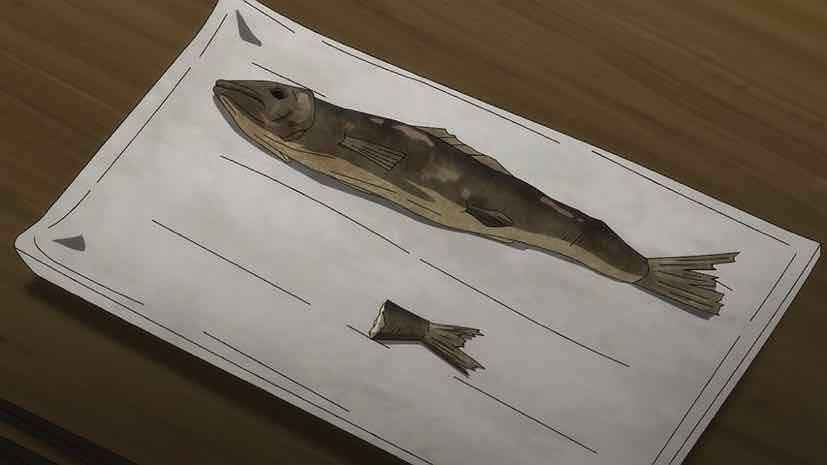


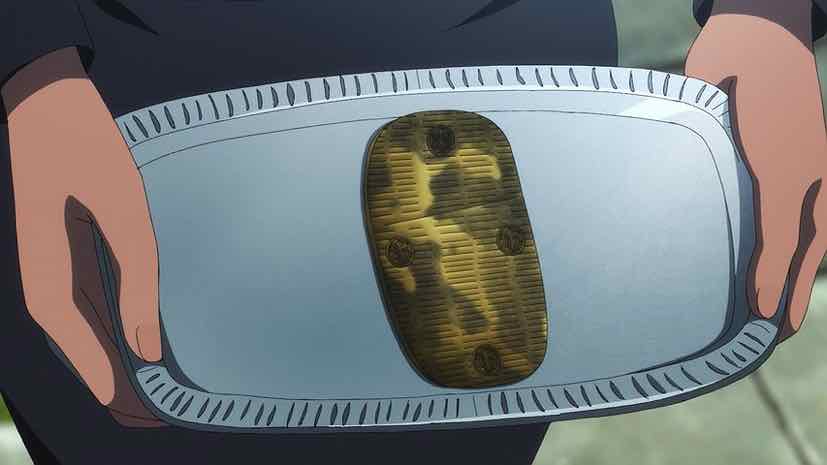


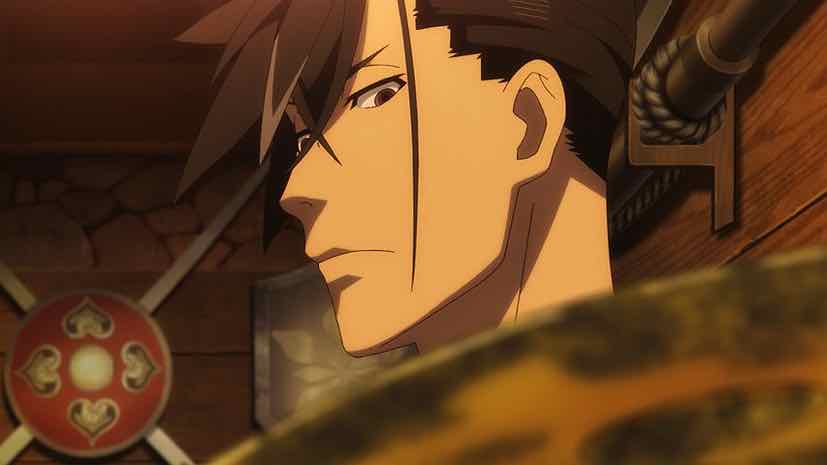
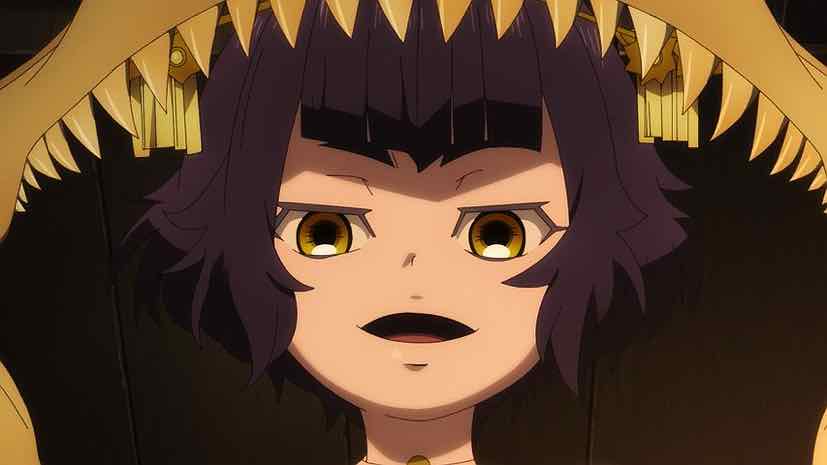
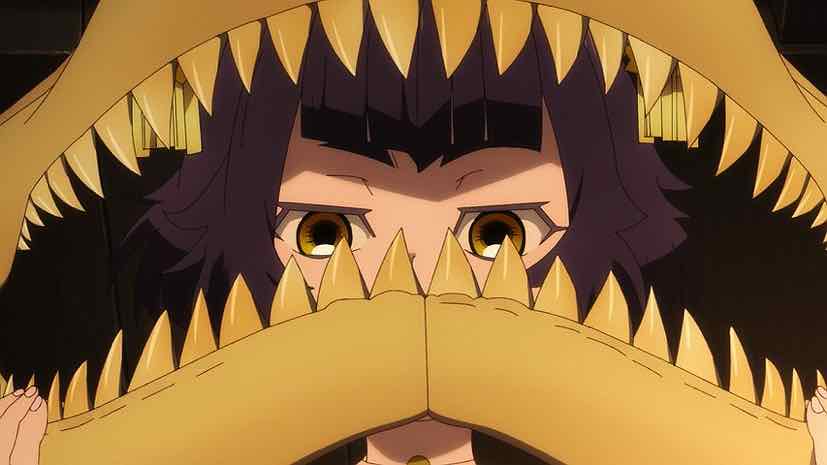
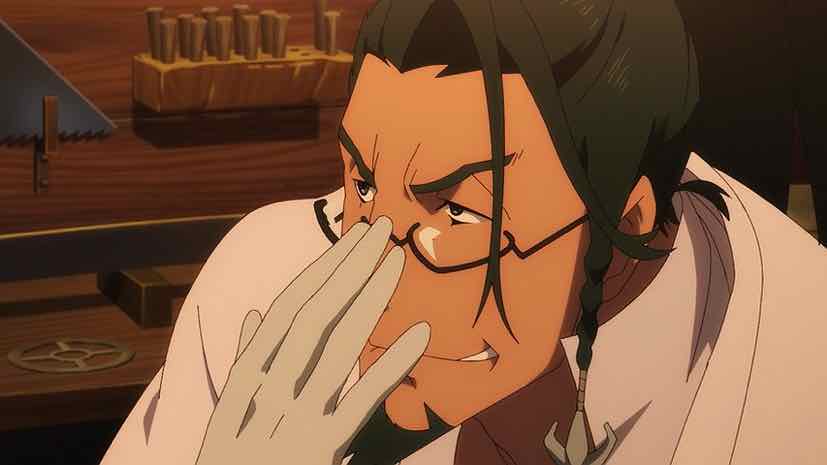
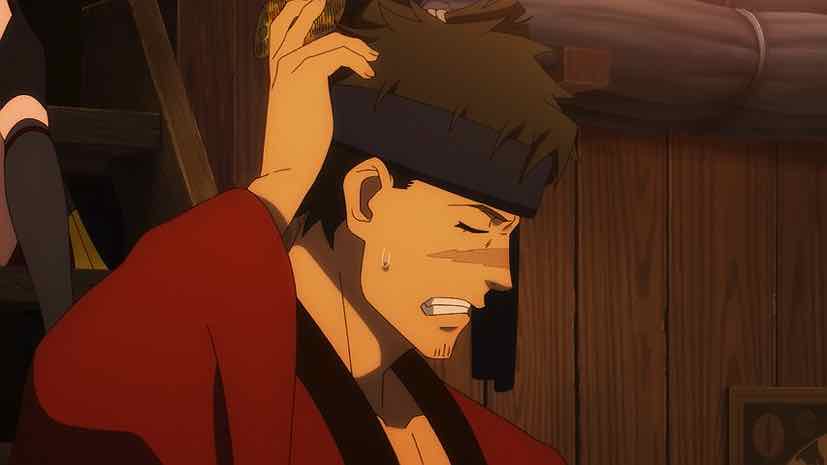
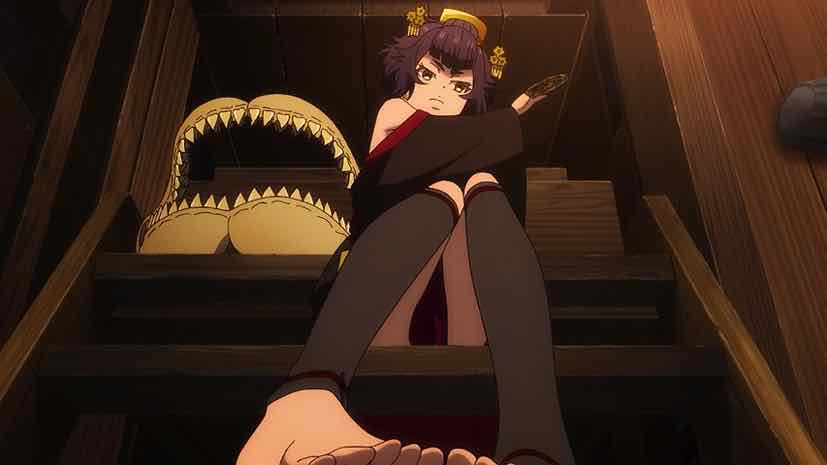
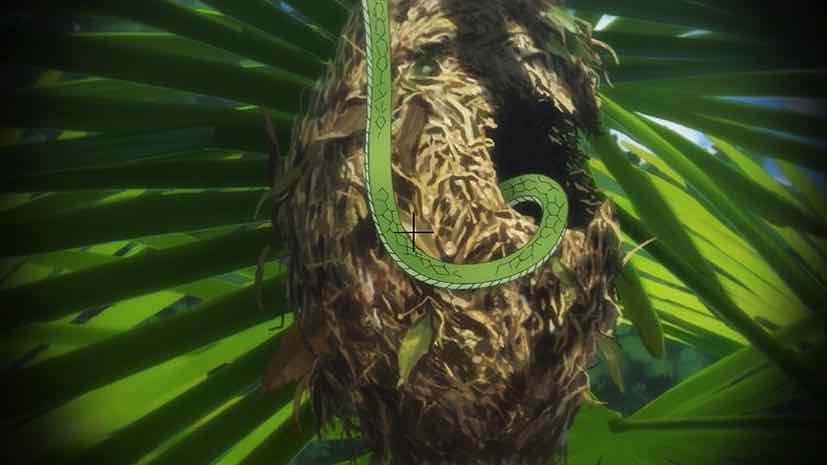
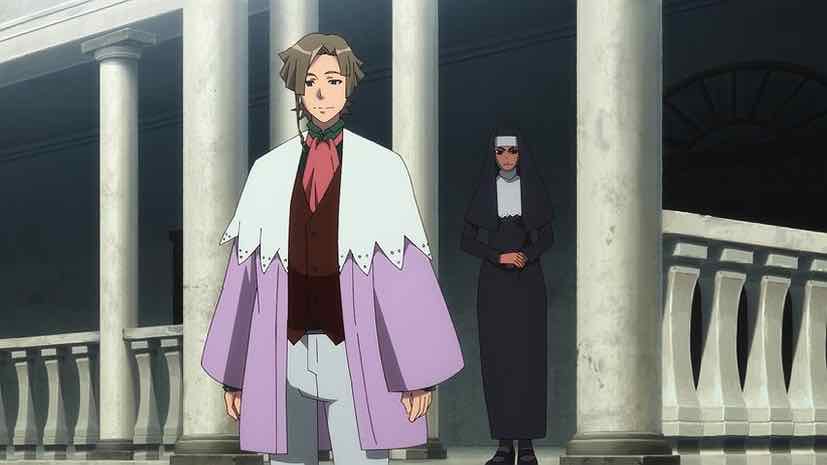
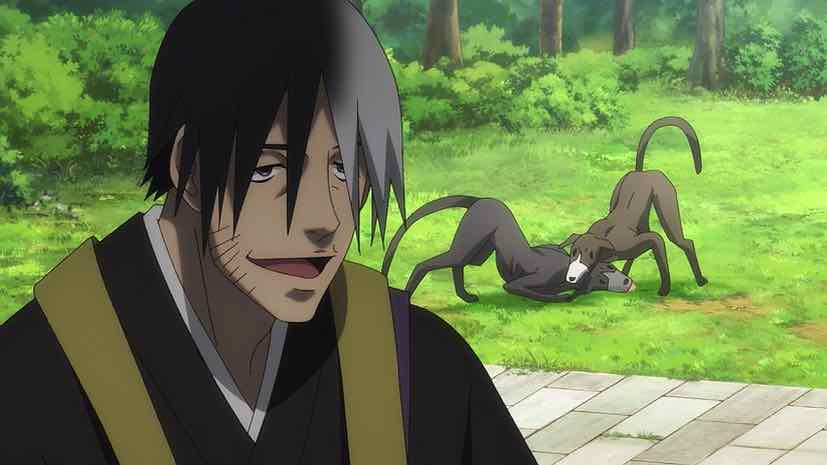
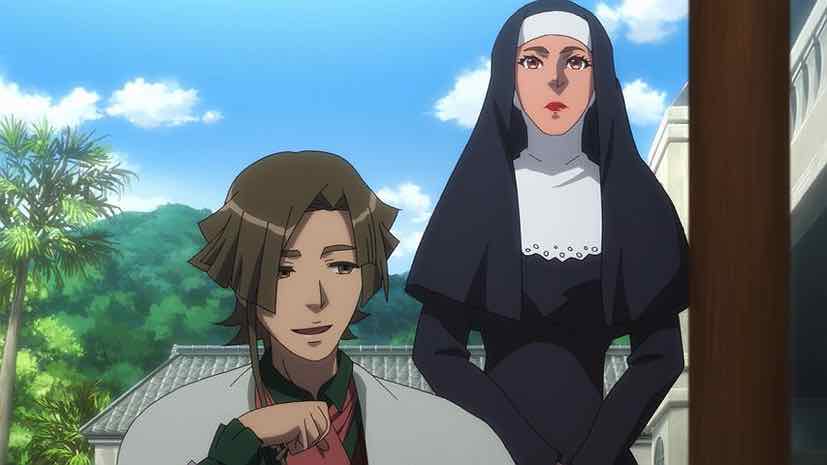
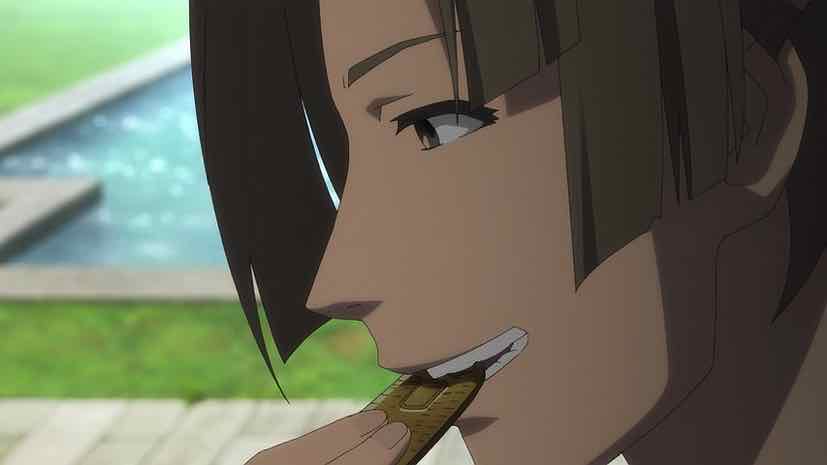
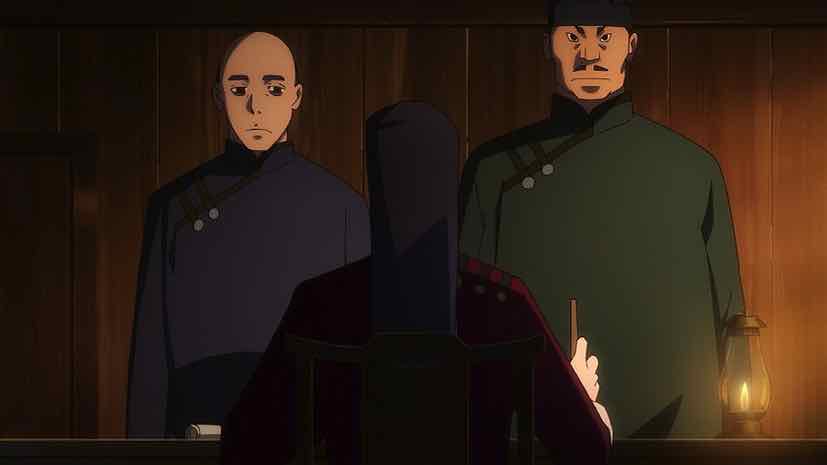

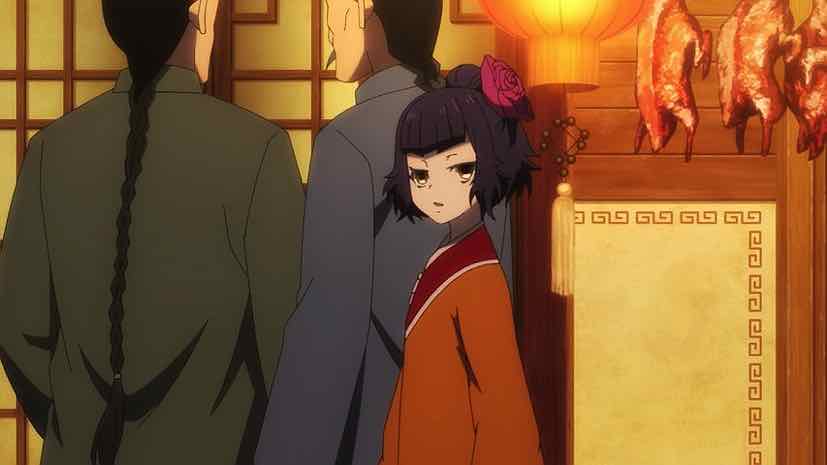

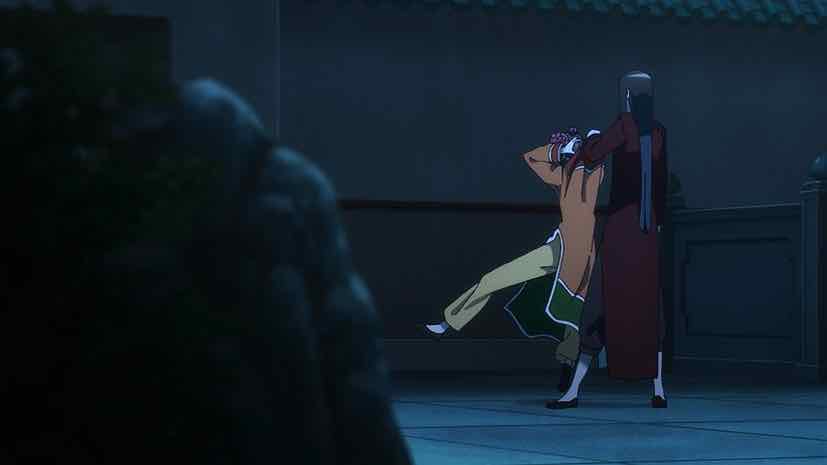

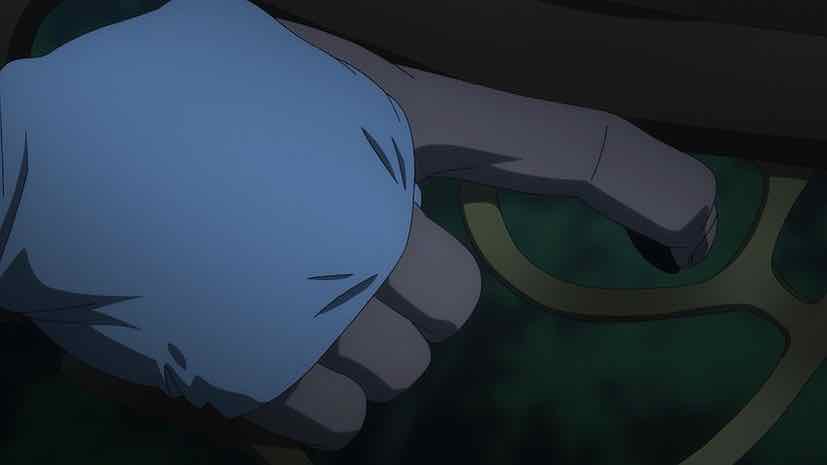

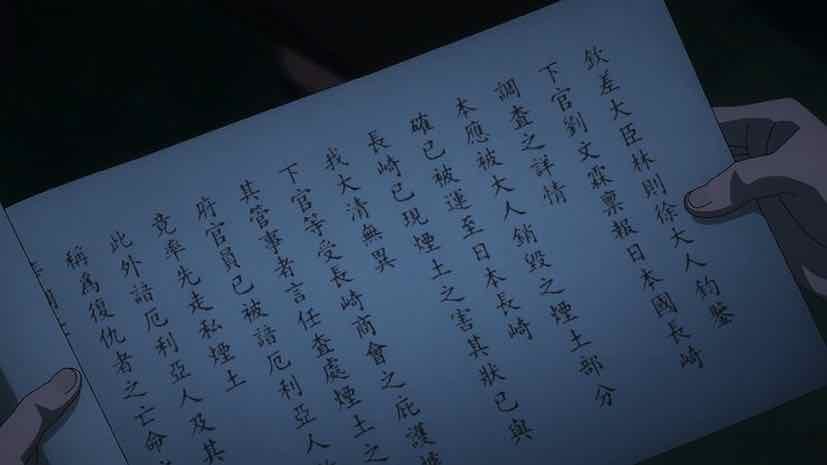
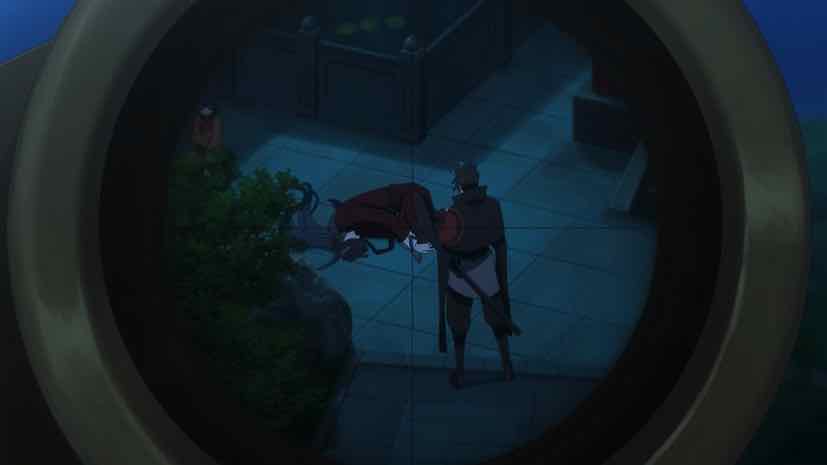
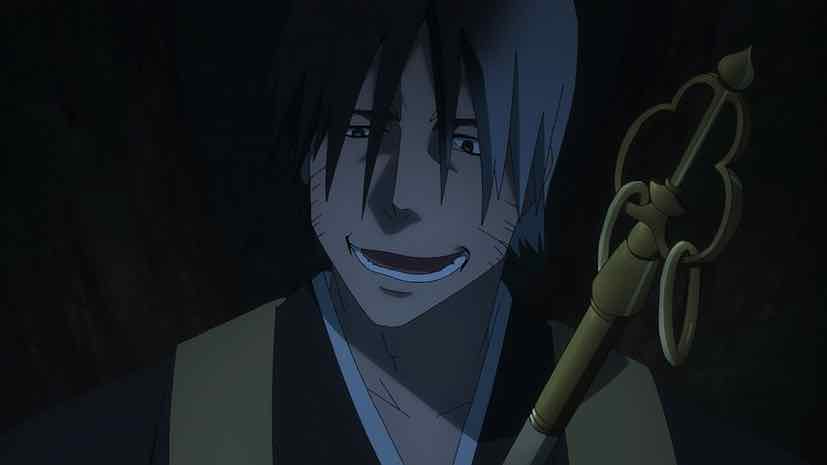


Joshua
February 24, 2023 at 11:16 pmThe thing that got to me this episode was just how Shishido was willing to pervert the meaning of “revenge” which is probably something Urobuchi wants to explore for the remainder of the series. As we see with him not even leaving visible marks on bitten oban, not koban, that he offers to Sada (who also has a warped view on the morality of killing as seen prior to his meeting with him) in order to enact his “revenge” on Yuuen and the other rebenji-ya (and possibly Isarizawa). It’s the idea of how the term “revenge” is thrown around and muddied so much that it is cheapened as a result until it has lost all meaning.
So if Liu survived the hit (but probably doesn’t have much time left before departing this world for real), I can see him vowing *true* revenge towards the one who double-crossed him which the main rebenji-ya are reluctantly willing to accept via one more bitten koban, judging by the name of the next episode “Mutual Understanding”.
Guardian Enzo
February 25, 2023 at 12:42 amYeah, but that slippery slope was always unavoidable. This ep doesn’t change anything so much as rip away the false facade.
Scampi
February 25, 2023 at 4:28 pmA reddit user has done a good translation of the letter if you’re interested in what it says: https://old.reddit.com/r/anime/comments/119z7r5/revenger_episode_8_discussion/j9pjuda/
Urobuchi had a good explanation for how such a large amount of opium came out of nowhere. Since it’s confiscated opium from one of the largest governmental drug crack downs in history there’s bound to be a huge amount of them, and such theft is pretty common in the news even nowadays. In retrospect it’d be funny if they actually marketed the show as “a war on drugs drama from the perspective of local vilgilantes clashing with both drug police and drug cartels, but set in 19th century Japan” instead of “another samurai anime.”
Also interesting that you choose to take two screenshots of Nio with the skull, Enzo. The behavior reminds me of cats snooping around with their whiskers to see if they can fit into tiny spaces. I wonder if that habit will ever come into play later, or if it’ll be just part of character data in some kind of official fanbook later.
Guardian Enzo
February 25, 2023 at 5:58 pmI felt like Fujimori shot that scene with Nio for a reason, and I felt like highlighting it. It was striking if nothing else.
Nicc
February 25, 2023 at 9:07 pmNow, this was a busy episode. Raizou continues to work on his art while still being haunted by his past. Like you said, he finally tears off the bandage and paints his late wife. He’s taken on a pseudonym and Yuuen even goes on to tell Raizou that he could be reborn as “Taishin”. Yeah, the closest thing we’ve had to a “happy ending” so far is the snake woman escaping with the children to an unknown and difficult future and the former monk and male prostitute escaping to the hills.
Later at the restaurant, we meet one of the characters that was shown in the closing seconds of the previous episode. It is an interesting talk between the priest (Sada) and Raizou, but I don’t buy the argument either.
You’re right that the next part is really interesting as Yuuen is summoned by the Chapel. It’s a hit disguised as a revenge job. That gold is singed, but not bitten. This really puts him and the group at a dilemma on whether or not to take the job. We also learn that there are other “revengers” working in the city as well.
The presence of the sister during the meeting the priest and Trade Union boss does indeed suggest that the Chapel are in cahoots. Joshua brought up a good point about the gold-biting scene. Gold is soft and so even a nibble should leave a mark. As to drive the point home, Shishido even lets his pet monkey take a bite of gold, which also somehow doesn’t leave any marks.
Both groups seek Liu, though for different reasons. Raizou meets Liu for the 3rd time, but Liu gets sniped from Sada’s group before they can really talk it out. Interestingly enough, the bolt-action rifle with suppressor is still less modern than the Doc’s compound now. The episode ends before we find out if Liu is still alive after that. It does look like Yuuen’s group is stuck in the middle.
Joshua
February 26, 2023 at 12:11 amHey thanks for the acknowledgement!
I would like to add to what I said above in that Shishido seems to be making a mockery of “revenge” through the way he’s doing business with Sada. He’s half-assing his bite marks on oban (which are smaller and cheaper than regular koban; 10 oban = 1 koban) as well as letting his monkey bite on one too. Couple that with the Chapel leading the rebenji-ya into a trap with a burnt koban that they feel they have to accept regardless, and Sada’s own warped morals on killing, and we can see how the term “revenge” is being cheapened and trivialized until it has lost its intended meaning.